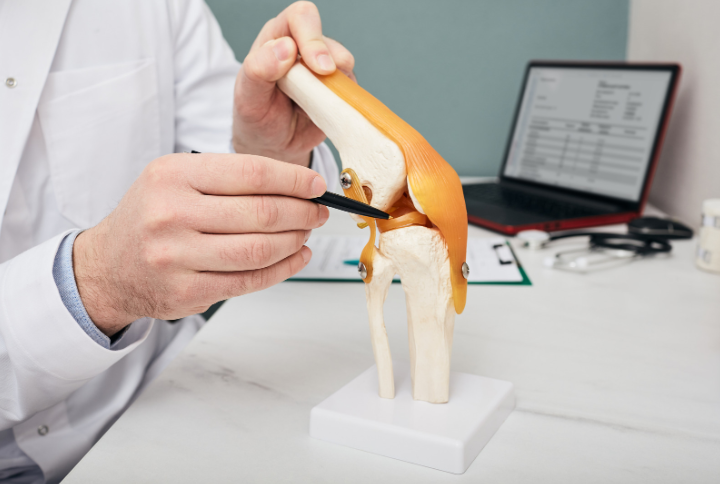
Meniscal tears are a common knee injury, frequently affecting athletes, active individuals, and even people who perform everyday activities. The meniscus is a C-shaped piece of cartilage located in the knee joint, and it serves as a cushion between the thighbone (femur) and shinbone (tibia). There are two menisci in each knee, one on the inner side and one on the outer side. These structures play a crucial role in stabilizing the knee joint, absorbing shock, and distributing weight evenly during movement. Without proper meniscal function, the knee is at an increased risk of damage and instability.
How Do Menisci Tear?
A meniscal tear can occur due to a sudden twist, pivot, or awkward movement of the knee, often during high-impact sports like soccer, basketball, or tennis. For example, when an athlete changes direction quickly or lands improperly after a jump, the meniscus can be overstretched or torn. However, meniscal tears are not limited to athletes. As we age, the meniscus becomes more brittle, and the cartilage may degenerate, making it more prone to tears even during routine activities such as squatting, lifting heavy objects, or simply getting up from a seated position.
Symptoms and Treatment of Meniscal Injury
Symptoms of a meniscal tear include pain, swelling, stiffness, and a sensation of catching or locking in the knee. Individuals may also experience difficulty fully extending the leg or bearing weight without discomfort. In some cases, the knee may feel unstable or like it could give out.
Treatment options vary based on the severity and location of the tear. Minor tears may improve with rest, physical therapy, and anti-inflammatory medications to reduce swelling and discomfort. However, more severe or persistent tears may require surgical intervention. Procedures such as a meniscectomy (removal of the damaged tissue) or meniscus repair may be necessary to restore knee function.
What To Do If You Tear Your Meniscus
If you suspect a meniscal tear, it’s important to consult an orthopedic specialist. Dr. Grossfeld and Bess Bradley, PA-C, can provide a thorough evaluation and recommend the appropriate course of action. Early diagnosis and treatment are key to preserving the knee’s function and preventing long-term complications, such as arthritis.
If you or someone you love has suffered a knee injury in the Louisville, Kentucky-area, board certified sports medicine physician Dr. Stacie Grossfeld at Orthopaedic Specialists PLLC can help. Orthopaedic Specialists PLLC is accepting new patients, and same day appointments are available. For additional information or to schedule an appointment, please contact Orthopaedic Specialists PLLC today at 502-212-2663.

Recent Comments